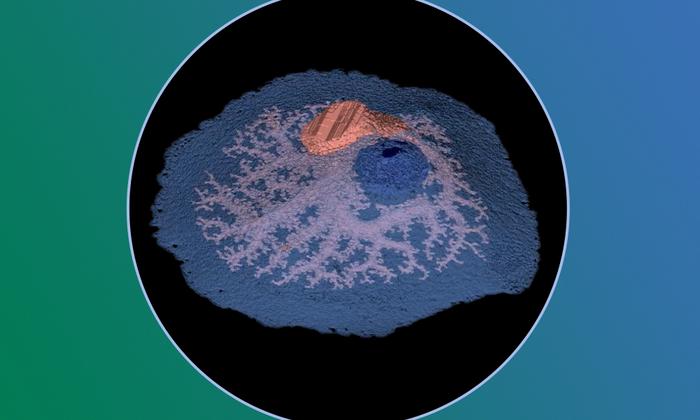Did you know that sponges can move? While not exactly the champions of underwater acrobatics, sponges exhibit coordinated movements — despite not having muscles or neurons. EMBL Heidelberg’s Arendt Group, in collaboration with the Savitski Team and the Prevedel Group, along with collaborators from the University of Heidelberg, and Yale University, has revealed surprising facts that not only shed light on sponge movement, but also on the evolution of blood vessels in humans and other animals.

Credit: Credit: Ling Wang, Anniek Stokkermans, Fabian Ruperti, Holly Joynes/EMBL. Adapted from: Current Biology
Did you know that sponges can move? While not exactly the champions of underwater acrobatics, sponges exhibit coordinated movements — despite not having muscles or neurons. EMBL Heidelberg’s Arendt Group, in collaboration with the Savitski Team and the Prevedel Group, along with collaborators from the University of Heidelberg, and Yale University, has revealed surprising facts that not only shed light on sponge movement, but also on the evolution of blood vessels in humans and other animals.
“I was intrigued when I learned that sponges actually move and that the molecular and cellular basis of sponge movement was so far largely unknown,” said Fabian Ruperti, PhD student in the Arendt Group and first author of the study. “As a biochemist, I was excited to tackle this question by combining new tools such as functional proteomics with the world of non-model species.”
Sponge movement relies on a system of densely branched water canals inside their body. When some of the canals close and the water gets flushed out, the sponge makes a whole-body movement, which until now, was believed to be caused by contraction of the cells lining the canals. The new findings show that this movement has actually more to do with relaxation and ‘deflation’ of the water canals, akin to the deflation of a balloon.
To dive deeper into the molecular and cellular mechanism of the sponge deflation, the scientists used advanced microscopy, pharmacology, single-cell sequencing, and several new proteomics techniques. They saw that what gets the sponge moving is the relaxation of stress fibres inside the cells of the canals, which is in turn triggered by an evolutionarily ancient inflammation-like molecular mechanism. Notably, the very same mechanism also regulates the contraction of the blood vessels of humans and other vertebrates, an important determinant of blood pressure.
“We learn that responses such as vascular relaxation and inflammation are not restricted to us, but instead occur in our very remote cousins, the sponges,” said Group Leader Detlev Arendt. “These processes must have evolved in the context of a challenge that is relevant not only for us, but also for many other animals. That means, we can only understand the structure and function of these systems in the context of evolution.”
Related:
- More than a gut reaction: What sponges can tell us about the evolution of the brain https://www.embl.org/news/science/more-than-a-gut-reaction/
About EMBL
The European Molecular Biology Laboratory (EMBL) is Europe’s life sciences laboratory. We provide leadership and coordination for the life sciences across Europe, and our world-class fundamental research seeks collaborative and interdisciplinary solutions for some of society’s biggest challenges. We provide training for students and scientists, drive the development of new technology and methods in the life sciences, and offer state-of-the-art research infrastructure for a wide range of experimental and data services.
EMBL is an intergovernmental organisation with 29 member states, one associate member state, and one prospect member state. At our six sites in Barcelona, Grenoble, Hamburg, Heidelberg, Hinxton near Cambridge, and Rome, we seek to better understand life in its natural context, from molecules to ecosystems.
Follow EMBL at:
https://www.linkedin.com/company/embl/
https://www.facebook.com/pg/embl.org/posts/
https://www.instagram.com/embl_org/
Journal
Current Biology
DOI
10.1016/j.cub.2023.12.021
Method of Research
Experimental study
Subject of Research
Animals
Article Title
Molecular profiling of sponge deflation reveals an ancient relaxant-inflammatory response.
Article Publication Date
4-Jan-2024
COI Statement
M.N. is the founder of bionic consulting Dr. Michael Nickel.




